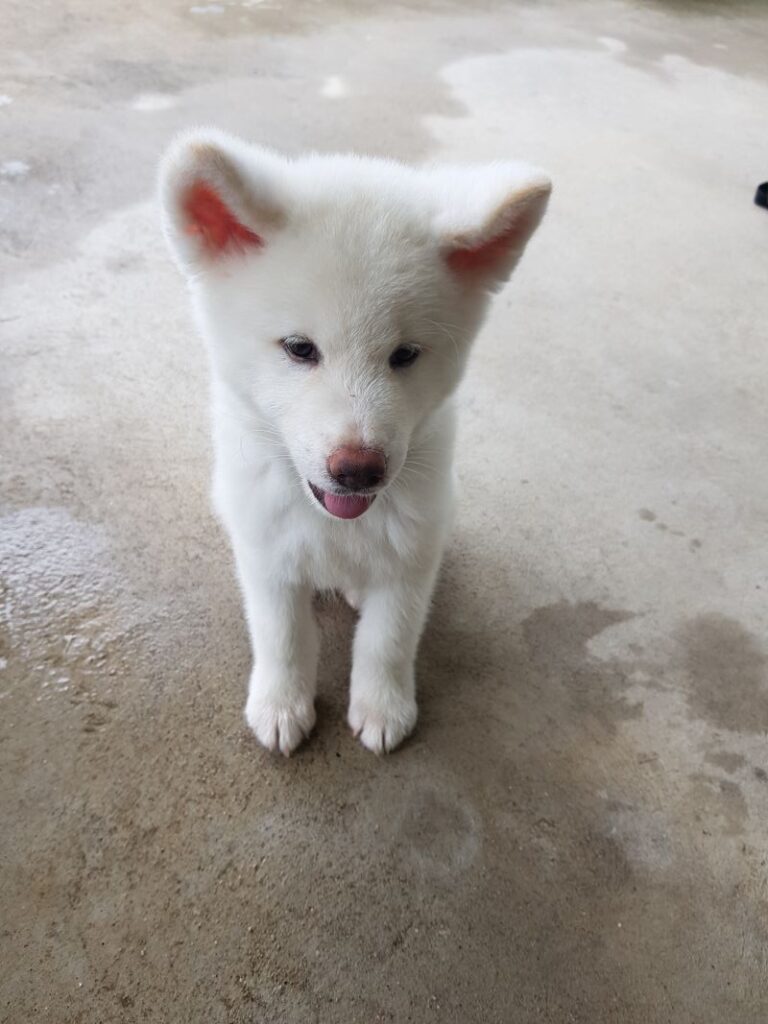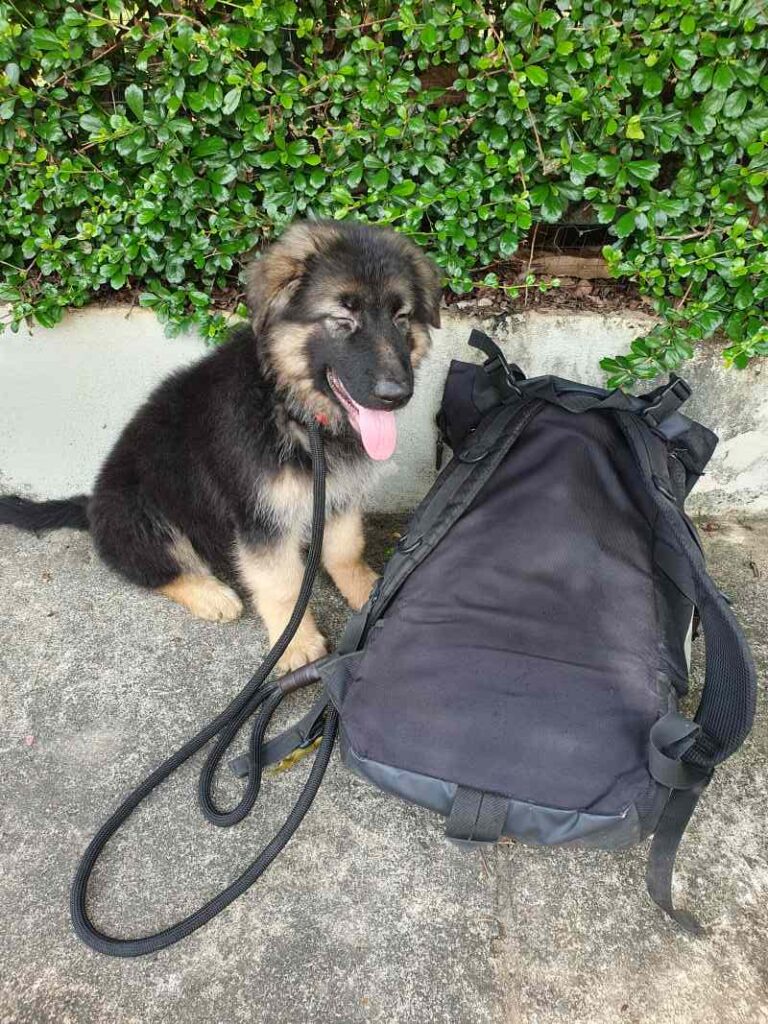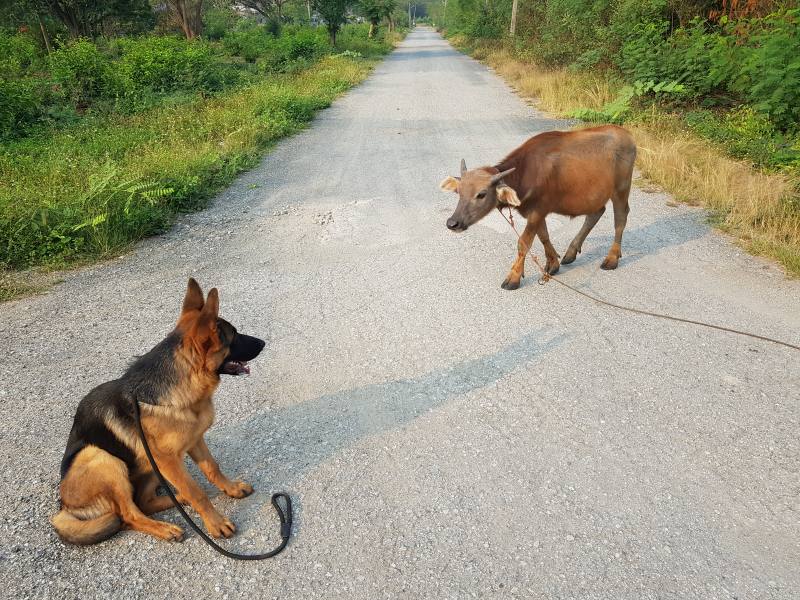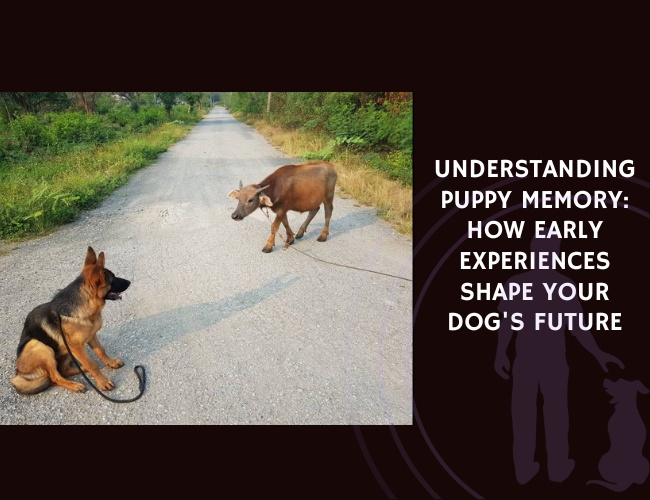Introduction: The Remarkable Memory of Puppies
Why Puppy Memory Matters
Puppies are far more than bundles of energy and curiosity. Their brains are actively taking in the world, forming memories that shape their future. Understanding these memory capabilities is crucial for every responsible pet owner. Early experiences, whether positive or negative, leave a lasting impact. A puppy’s memory influences how they respond to people, animals, and new environments for years to come.
Types of Memory in Dogs
Dogs, including puppies, use different kinds of memory.
- Long-term memory helps them remember people, places, and important routines long after those first critical months.
- Procedural memory supports how puppies learn habits, like walking on a leash or sitting on command.
- Associative memory allows them to link events together—like a food bowl’s sound meaning dinner is coming.
- There is even some evidence of episodic-like memory, where puppies can recall particular events and details from early life, though this is still being researched.
The memory system in puppies is built for learning fast. This gives them a solid foundation, but it also means that owners must be careful about what experiences are introduced early on.
Why Responsible Pet Owners Need to Understand Puppy Memory
Helping a puppy build good memories isn’t just about having a happy pet. Early exposure, training, and environment shape lifelong habits, confidence, and social skills. Positive experiences, like gentle handling or play, help puppies feel safe and secure. Negative or scary events, especially in the first months, can lead to fear, anxiety, or even aggression later in life. Recognizing these facts supports informed, compassionate care and helps prevent behavior problems before they start.
By knowing how remarkable puppy memory really is, owners can make decisions that give their dogs the best possible start.
Up next, we’ll explore what happens inside your puppy’s brain as memory begins to take shape.
The Neurological Basis of Puppy Memory
How Puppy Brains Grow to Remember
Puppy memory is fascinating because it is shaped as their brains develop from birth. From the moment they are born, the brain starts building pathways that help puppies learn about their world. At first, memory is basic—like knowing how to nurse or respond to warmth. As puppies grow, their brain connections become stronger, letting them remember more complicated things.
The Important Brain Structures
Two main parts of the brain play a big role in memory: the hippocampus and the amygdala. The hippocampus helps puppies form long-term memories, such as remembering routines or people. The amygdala focuses on emotional memories, such as recognizing things that are either safe or scary. These brain areas are not fully developed at birth, so young puppies have limited memory skills. Over the next few weeks, they go through rapid brain growth, which allows them to retain more information and form lasting memories.
Memory Timeline in Young Dogs
Puppies experience huge changes in just a few weeks. In the first few weeks of life, their memory is mostly about simple routines and feelings of safety from mom and siblings. Around three weeks, the brain starts to mature, and new skills develop quickly. By the time puppies are about three to fourteen weeks old, their memory structures are working well enough to remember people, places, experiences, and even basic commands. This is why early interactions during this time matter so much—they help set up the foundation for how puppies will think, feel, and behave as adults.
Understanding how puppy brains develop memory helps owners create positive, safe environments for their pets to learn and thrive. This ensures that puppies can begin forming the important memories that guide them through life.
Types of Memory in Puppies
Long-term Memory in Young Dogs
Puppies have a stronger memory than many expect. From a young age, they are already building a foundation of long-term memories. This means they can remember important lessons, people, and places for months—or even years. Puppies that experience gentle handling, fun play, and positive introductions during early life often carry those memories with them as adults. Early learning, such as commands and routines, sticks around and forms a vital base for future training. Memories like these help puppies grow into calm, happy, and confident dogs [Do Puppies Have Memory What They Re].
Procedural Memory: How Puppies Learn Habits
Procedural memory is how puppies remember the steps for certain activities. Think of it like muscle memory—how a puppy learns to walk, run, play fetch, or even eat from its bowl. These basic habits form quickly because young dogs practice them over and over. When you teach your puppy to sit or stay, you are building procedural memory. Daily repetition and kind guidance are key. Practicing good behaviors in a supportive way creates lifelong habits [Do Puppies Have Memory What They Re].
Associative and Episodic-like Memory
Associative memory means puppies learn by linking things together. For example, they might connect the sound of a food bowl with mealtime or a certain word with a treat. This is how basic training works—puppies understand that good actions lead to rewards. Episodic-like memory is deeper; it lets a puppy remember special events, like a fun walk in a new park. While research is ongoing about the details of episodic-like memory in puppies, these skills help shape responses to new experiences and build confidence for future adventures [Do Puppies Have Memory What They Re].
Understanding these memory types helps every owner create a supportive learning environment for their puppy.

What Experiences Do Puppies Remember?
Social Connections That Shape a Pup
Puppies have an impressive ability to remember their early interactions—especially those with people and other animals. Social experiences during the first few weeks of life are essential. Positive encounters with kind people or playful dogs help puppies form healthy friendships as they grow. If a puppy is treated gently and introduced to friendly faces during this period, they are more likely to develop confidence and comfort in new social settings. Unfortunately, scary or harsh experiences can have the opposite effect, leading to long-lasting fears or aggressive behavior as an adult.
Exploring the World Around Them
The environments puppies explore also leave a lasting mark on their memory. Early exposure to a variety of sights, sounds, smells, and textures—such as bustling streets, carpets, or grassy yards—teaches puppies how to respond to the world. These environmental lessons help puppies become less fearful and more adaptable. The more often and gently a puppy is introduced to different experiences, the more likely these memories will help them handle new places or loud noises without feeling scared later on.
Emotions and Associative Learning
Emotional events are especially powerful for puppies. They are great at forming associations. For example, a puppy that hears the sound of a food bowl right before eating quickly learns to get excited by that noise. Positive reinforcement, like treats or affection during training, encourages puppies to remember good behaviors. On the flip side, punishment or frightening experiences can cause a puppy to remember fear, sometimes for life. These memories can shape whether a puppy grows up trusting or anxious.
Professional and supportive care during these early stages helps ensure that puppies develop into well-adjusted members of the family, setting the stage for learning and growth as they mature.
Critical Periods: When Memory Matters Most
The Importance of Early Socialization
During the first weeks of a puppy’s life, memory and learning happen at an incredible pace. The most sensitive window, often called the socialization period, occurs between weeks 3 and 14. Exposure during this time to different people, animals, sights, and sounds plays a huge role in shaping your puppy’s behavior for years to come. Positive experiences—such as gentle touches, playful interactions, and calm introductions—help puppies grow into well-adjusted, social adult dogs.
Early positive exposure teaches puppies to see the world as a safe, interesting place. For example, meeting friendly people and other animals encourages confidence and lowers the risk of fear or aggression when they are older. Safe exploration of new environments, like different floors or sounds, helps puppies feel secure and adaptable when facing change later in life.
Navigating Fear Periods
Puppies also go through what are called fear periods, where they are more sensitive to scary events. Usually, these fear periods happen within the first few months. Experiences during these phases are remembered for a long time and can deeply shape a puppy’s future reactions. A single negative or frightening event can lead to fearfulness or anxiety that sticks with your puppy into adulthood. That’s why supportive, compassionate care is vital. Gentle reassurance and positive reinforcement go a long way in building trust and lessening stress.
The Role of Timing in Learning
Timing is everything when teaching and socializing a puppy. Introducing new things too late, or exposing your puppy to something scary during a sensitive window, can determine whether they grow up confident or fearful. Professional advice suggests that early, structured, and positive exposure is essential for healthy development and lasting memory formation.
Taking these steps ensures that puppies develop a strong, supportive foundation for future learning and behavior.
Remember. Reinforce. Rewire.
Early Experiences Last a Lifetime
Puppies don’t just forget. From the first wag to the first fright, their brains are forming deep, lasting impressions. Whether it’s the sound of your voice or a scary noise on the street—each moment becomes a memory that shapes how they think, feel, and behave.
You Shape What Sticks
Positive interactions, structured socialisation, and gentle training aren’t just “nice to have.” They’re neurobiological investments. Puppies link emotion with memory, so every safe encounter strengthens trust—while every stressor, if mishandled, can leave a scar.



Memory Is Not a Life Sentence
Fear can be unlearned. Confidence can be built. Puppy brains are plastic—constantly updating through new experiences. With consistency, empathy, and timing, you can reinforce the good and rewire the rest. Because every memory matters—but it’s the new ones you build together that count most.
The Impact of Early Memories on Behavior
How Early Experiences Shape Fear and Confidence
Puppies are shaped by what they experience in their earliest weeks. When a puppy enjoys positive interactions with humans, other animals, and safe environments, they grow up more confident and adaptable. Gentle play, peaceful introductions to new sights and sounds, and loving care all build a supportive foundation. Puppies that are exposed to a variety of people, places, and experiences during their socialization window are often more relaxed and curious as adults.
However, negative or traumatic events leave a lasting mark. Rough handling, loud noises, or stressful encounters—especially during sensitive periods—can teach puppies that the world is scary. These fearful memories may show up later as timid, anxious, or even aggressive behavior. Trauma and neglect can seriously damage a puppy’s social skills and well-being, making it harder for them to trust or feel secure in new situations. This is why a careful, supportive approach is essential early on.
Memory’s Role in Training Success
Puppies are eager learners. Their memory pathways thrive on consistency and encouragement. When a puppy is rewarded with treats or praise for good behavior, they quickly make positive associations and remember these lessons. Early training that uses positive reinforcement builds skills and habits that last a lifetime. Commands like “sit” or “come” often stay with a dog for years if learned during puppyhood.
Negative training methods, like punishment or yelling, may make a puppy anxious and more likely to fear learning. Instead, creating enjoyable training moments sets the stage for future success. Strong, frequent positive experiences are remembered best and help puppies become happy adult dogs.
Long-Term Effects of Trauma
Early trauma, such as abuse or severe neglect, can harm a puppy’s ability to form healthy attachments. These painful memories may result in long-term behavioral problems like separation anxiety or aggression. Puppies that experience trauma need extra care and sometimes professional support to overcome their fears and build new, positive memories.
Empathy and patience are vital for helping puppies heal from negative experiences, allowing them to trust and enjoy life once again.
How Long Do Puppies Remember?
Memory Retention Factors in Young Dogs
Puppies have impressively strong memories, especially when experiences are frequent or emotionally powerful. The strength of a puppy’s memory depends on how often an event happens, how intense it is, and what feelings are attached to it. For example, routines like early training commands are often remembered for years. Similarly, early traumatic experiences can deeply affect later attachment and social behavior.
Environmental and social exposures also matter. Puppies who encounter a wide variety of people, places, and sounds early on typically adjust better to new situations as adults. Early positive experiences build confidence, while negative ones can cause long-lasting worries or fears. This highlights why safe, supportive, and positive environments are so important for young dogs.
Memory Reconsolidation: Changing Puppy Memories
Puppy memories are not set in stone. Over time, memories can change—this is called memory reconsolidation. When puppies are exposed to new experiences that overlap with old ones, their brain can update and even reshape older memories. For example, a puppy who once feared strangers may become more social after repeated gentle encounters. Owners can help by reinforcing positive experiences and being patient if negative memories appear.
Research on Puppy Memory Duration
Current research on how long puppies remember things is limited. However, studies on adult dogs show they can remember learned skills and people for years, even without constant practice. This suggests that puppies may develop lasting memories at a young age, especially for important events like early training, socialization, and trauma.
While research continues, one thing is clear: supportive and positive early experiences help your puppy remember the good things in life and shape their future well-being.

Positive Training: Creating Good Memories
Building Positive Associations Through Reward
Positive reinforcement is the most effective and supportive way to help puppies learn and remember good behaviors. By using treats, praise, or play as rewards, you create strong, happy memories that encourage your puppy to repeat those actions. For example, when a puppy sits when asked and gets a treat, its brain forms a positive link between sitting and something enjoyable. Over time, these repeated positive experiences help build a foundation for lifelong learning and good habits.
Early Training Sets the Stage for Lifelong Success
Starting training early is key. Puppies rapidly absorb new experiences, especially during their first months. Commands learned during puppyhood—like sit, stay, and come—often stay with a dog for life. This is because early memories are powerful and can shape a puppy’s confidence and ability to learn in the future. Early routines also make learning new tricks or commands easier as your puppy grows. Creating a routine filled with encouragement and clear expectations helps build trust and excitement about learning.
Avoiding Punishment and Trauma
It is crucial to avoid harsh corrections or punishment-based training. Negative experiences can create lasting fear and anxiety, which may show up as behavior problems later. Puppies are sensitive, and early trauma or neglect may affect their ability to trust and learn, even years later. Supportive environments, filled with patience and gentle guidance, are much more effective for healthy development.
Lasting Impact of Gentle, Consistent Training
Consistent, compassionate training not only builds skills but also supports your puppy’s emotional health. Each positive interaction adds to a growing memory bank of safe, happy experiences. Raising a confident and adaptable dog starts with creating good memories every day.
Moving forward, understanding how social experiences shape puppies will further help guide them into well-adjusted adults.
Socialization: Building a Memory Bank of Experiences
The Value of Early Social Experiences
Socialization is about much more than introducing your puppy to new faces; it shapes how they see the world. During the critical socialization period, typically between 3 and 14 weeks of age, puppies absorb lessons from every encounter. Positive, structured exposure to people and other animals helps puppies build confidence and trust. Friendly playdates, gentle handling, and exploring new spots can fill your puppy’s memory with good feelings and lessen the risk of fear or aggression as they grow.
Structured Exposure to Environments
A supportive, professional approach means guiding your puppy through a variety of environments. Letting your puppy walk on different surfaces, hear household and outdoor sounds, and discover safe places helps them feel at ease in diverse settings. Puppies remember these early adventures, so gentle encouragement and rewarding positive reactions will set the stage for a curious, unafraid adult dog.
Creating Positive Socialization Experiences
Informative training starts with patience and a cheerful attitude. Always reward your puppy’s calm or curious responses with a treat, praise, or play. This way, your puppy learns that new things mean good outcomes. Avoid overwhelming your puppy with too much at once—take your time and keep sessions short and positive. This professional method builds lasting, strong memories of happy experiences.
Mistakes to Avoid
Avoid exposing your puppy to scary or harsh situations, especially during sensitive periods. Negative or traumatic events can stick in your puppy’s memory, potentially leading to lasting fears or behavior problems. Skip punishment and focus on providing care and safety, supporting your puppy with understanding at every step.
Taking these supportive steps helps puppies create a lifelong bank of positive memories, leading to well-rounded, joyful companions.
Addressing Early Negative Experiences
Recognizing Signs of Traumatic Memories
It can be alarming to notice signs that your puppy may be holding onto bad experiences. Puppies may show fear or reluctance in certain situations, such as cowering or hiding from specific people, sounds, or environments. Sudden changes in body language like trembling, flattened ears, tucked tails, or excessive panting are also common. Some puppies may become jumpy, show avoidance, or display aggression when approached. These behaviors often signal that a puppy remembers a negative or scary encounter from earlier life.
Helping Puppies Overcome Difficult Beginnings
Supporting a young dog through tough early memories requires compassion and patience. Here are informative and professional techniques that may help:
- Provide a calm, safe environment where your puppy feels secure.
- Use positive reinforcement for brave or curious actions—reward relaxed behavior and gentle exploration.
- Gradually expose your puppy to feared situations at their own pace. For example, if a certain sound is scary, play it at a low volume and offer treats or play.
- Avoid forced exposure or punishment, as these can create more negative memories.
Building positive associations takes time, but with supportive and consistent routines, most puppies learn to feel safe and confident in new situations.
When to Seek Professional Support
If your puppy’s fear or anxiety does not improve, worsens, or leads to aggression, it is important to seek professional help. Certified trainers or veterinarians with experience in animal behavior can offer customized strategies to address trauma. This step ensures your puppy’s emotional health and helps create a happier, well-adjusted family member.
Understanding and addressing negative early experiences lays the groundwork for lifelong trust and learning. As you foster positive associations, you help your puppy move forward with confidence.
Conclusion: Shaping Your Puppy’s Future Through Memory
Early Experiences and Lifelong Impact
A puppy’s first months are a powerful time of learning and memory. The experiences your puppy has—whether positive or negative—can shape their confidence, social skills, and behavior for years to come. Puppies remember their early social interactions, new environments, and emotional moments. These early memories help set the tone for how they approach the world as adults. Positive, structured socialization with people and other animals can lead to a friendly, adaptable dog. But negative or scary experiences can create long-term fears or anxieties.
Your Role in Their Development
As a responsible owner, you play a key role in shaping your puppy’s memory bank. Providing positive reinforcement, gentle handling, and a safe environment helps to create strong, healthy memories. Puppies thrive when you introduce them to new sights, sounds, and experiences in a supportive way. The goal is to encourage curiosity and confidence through patient, compassionate guidance. Avoiding punishment and trauma is just as important, since negative experiences may have lasting effects on your puppy’s well-being.
The Path Ahead: Knowledge and Growth
Research highlights the remarkable memory abilities of puppies, though there is still much we need to learn. More studies are needed to fully map out how puppies develop different kinds of memory. Until then, it is clear that your day-to-day interactions have a profound effect on your dog’s future. Building a strong foundation with positive early experiences is one of the best gifts you can offer your furry companion. Their journey starts with you, and your supportive approach will echo throughout their life.










